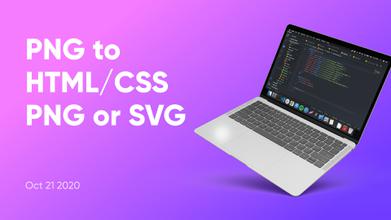Google Algorithm Changes Explained
Jan 30, 2020 6954 seen
Modern life is considered incomplete without the use of the internet. Modern civilization can not live without the internet in our days. So, as long as over 90% of the online searches are being done on Google, it will be impossible for people to run their businesses out of the internet and grow them without being aware of all the possible algorithms of Google. Everything starts with the simple clicks through search engine optimizations just as you create your website, which allows people to improve and grow the activeness and visibility on Google ranking.
However, updates and changes on Google's algorithm are everlasting, which means you need to make periodic researches on your SEO practices.
What is the Google Algorithm?
Google algorithm is a chain of complex computer programs, which are used to rank the internet's websites and determine which one's worth to be displayed on the search engine results in the first pages.
Google's algorithm's purpose is to filter an ordered list of the best and the most relevant sites for the people who are searching.
So how Google works? It simply sends web crawlers and bots to scan each website and find out automatically where to put them in results pages. The process contains more than 200 various factors, which are being modified over 600 times every year.
Some updates are going to be listed in this article, which has a huge influence on Google's algorithm, but also there are other broad changes that are being implemented only once-twice per year.
Those are called "Core Updates". In other words, they are modifications that are quite remarkable to have an upshot on the way that searching results are accomplished, although, they are not powerful enough to be a priority for higher rankings.
Panda
Panda was launched in February 2011 and was affected by low-quality content
Google's Panda algorithm is considered one of the largest steps in the war against all the content farms and low-quality pages. With the help of this update, Google wanted noticeably to reduce the presence of slow and poor sites and give priority to the high-quality websites in the search engine ranking pages.
According to the Panda algorithm, the main problematic factors determined by duplicate content, thin text, content farming, lack of authority, pages full of ads, and some other, so-called, bots.
Penguin
Penguin was launched after a few months, in 2012 and the target is spam pages of the websites.
It was meant to find and handicap websites that are manipulating link practices. So the link volume played a much more significant ranking factor than the content quality, favoring links that buy links.
This algorithm is now one of the above-mentioned, core algorithms, which allows google to control low-quality content and spamming techniques.
Hummingbird
After over a year, Hummingbird was launched which is focused on keyworded content.
Hummingbird was the first major algorithm update of Google for it was the first time that the algorithm was completely changed.
Through this algorithm, Google started to target the meaning behind any of the words on the query and the way they relate to each other.
As a result, pages should be matched the peoples intent who are searching for something, even though they do not have typed the exact words on the search field. Hummingbird algorithm redefined the way that keywords used to be used on websites. Consequently, Google could lead to more natural uses with keyword stuffing.
Pigeon
The pigeon was launched in 2014, summer. Sites affected were the relevant local pages.
The main goal of this algorithm was the increase of the local search results ranking, affecting the sites', and also, Google Maps' pins.
Pigeon is paying attention not only to in-site practices, like writing strong SEO H1's but also on backlinks and businesses' outreaches.
With the help of Google's Pigeon algorithm update, one of the most notable changes was occurred on Google's local results, so far.
Mobile
In 2015 Mobile was launched and punished the websites which are not optimized for mobiles.
The Mobile Google algorithm is definitely one of the most known updates on this list. With the mobile-first index, Google's algorithm began to rank the websites making their mobile versions a priority.
This time the new update of the Google algorithm caused a big buzz on different business activities.
RankBrain
RankBrain was launched in the same year as the previous one and affected the contents that are written unnaturally.
It is a machine learning algorithm, which uses artificial intelligence to determine the results that are most likely meeting searchers' expectations. Later, RankBraing algorithms were involved in almost all Google search queries.
Since its launch time, RankBrain is defined by Google as the 3rd most important factor of ranking among the other 200 and more factors.
Possum
Being launched in 2016, Possum targeted location-sensitive results.
Targeting them, this algorithm was affecting first business sites. Possum was considered as a local filter, which was taking into account business, as well as, user's address in order to get the most relevant results.
Fred
Fred was launched in 2017. It was made to determine the ad-centered contents.
Fred was another major algorithm of Google that penalized again all the low-quality content, which was created generating revenue, for example, excessive ads on sites with poor content.
By the way, Google published this update only after weeks of its launch, creating incessant buzz around. Google also refused to share any details on what Fred targeted, encouraging users to look up the Webmaster Quality Guidelines once again.
BERT
Bert is one of the latest updates of Google algorithms, which launched in 2019 and focused on thin content.
BERT is a deep learning algorithm. By using natural language processing this algorithm is understanding better the meaning of the words in sentences, specifically focusing on their conversational context.
This was called "the biggest leap forward in the past 5 years" by Google itself.


